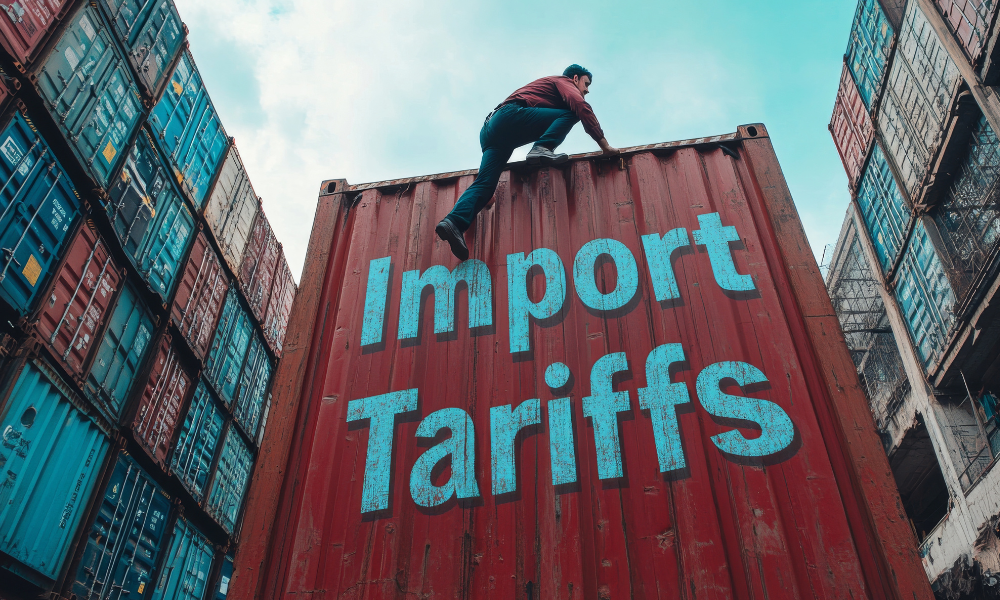

Following the twists and turns of US trade policy is something of a full time job in 2025 as President Trump announces, adjusts, and delays tariffs seemingly on a whim.
While the uncertainty is leading to market volatility and economic concerns, the latest chapter in this evolving story may give at least some positivity on inflation and the financial outlook for many US retailers, according to UBS chief economist Paul Donovan.
With tariffs not now beginning this week, but on August 1, leaving room for negotiations between the US and several key trading partners, markets are digesting newly announced rates for some but also the potential for some firm agreements to replace the flaky narrative - although it should be noted that the new deadline is described by the president as “firm, but not 100% firm.”
Trump says letters have been sent to the leaders of 14 nations including Japan, Thailand, Indonesia, and South Africa. They warn that tariffs will be incoming next month with some facing higher rates than was announced back in April, while some will be lower.
With tariff agreements already reached with the UK and Vietnam – and free trade agreements already active with many countries – there is still a lot of work to do to secure agreements with other major traders including the European Union. A partial framework has been agreed with China but tariffs remain elevated compared to pre-April levels.
The reason UBS’s chief economist says there is a positive from the delayed action relates to the supply chain and how retailers operate.
In an interview with Bloomberg TV, Paul Donovan said that although the current 10% tariffs imposed on all imports will mean higher inflation for July and August, delaying the higher tariffs will mean American consumers may not face many of the escalated prices until after the key shopping season.
By the time you’ve got the goods shipped to the United States, you’ve got through the supply chain, given that a lot of retailers obviously order early for Christmas,” he said. “That’s obviously something that will lessen some of the damage to US consumers in the second half.”
However, this only pauses the pain, Donovan added: “By the end of this year, real inflation-adjusted wages are going to be going down, not up, and that’s when we’re going to start to see some of the problems really kicking in.”
Donovan told Bloomberg TV that when higher prices come, consumers are likely to turn to credit cards and savings.
There is an assumption though, that Trump will make a further change to his trade policy as American businesses become strained by higher import costs.

The New Orleans-based 5th Circuit has sided the industry groups arguing the commission's short-selling rules exceeded its authority.

The deal will see the global alts giant snap up the fintech firm, which has struggled to gain traction among advisors over the years, for up to $200 million

Elsewhere, Osaic extended its reach in Knoxville with a former TrustFirst team, while Raymond James scored another win in the war for Commonwealth advisors.

Meanwhile, EP Wealth extended its Southwestern presence with a $370 million women-led firm in Santa Fe, New Mexico.

The recently enacted OBBBA makes lower tax rates "permanent," though other provisions could still make earlier Roth conversions appealing under the right conditions.
Orion's Tom Wilson on delivering coordinated, high-touch service in a world where returns alone no longer set you apart.
Barely a decade old, registered index-linked annuities have quickly surged in popularity, thanks to their unique blend of protection and growth potential—an appealing option for investors looking to chart a steadier course through today's choppy market waters, says Myles Lambert, Brighthouse Financial.
